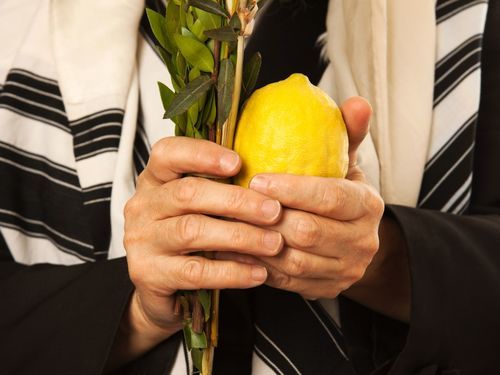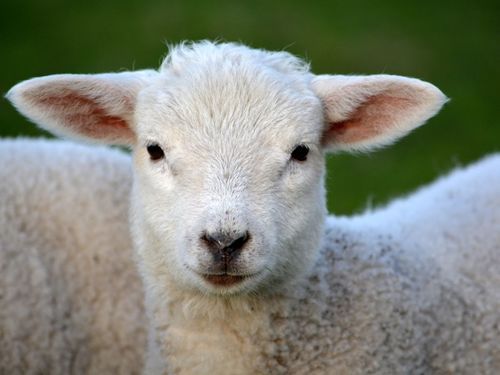Teach me Your statutes.
Psalm 119:26
Guidelines for Corner Fringe
To help guide our congregation, leadership has set forth the following practices.



We Practice...
CALENDAR
Hillel Calendar
We have chosen to unite with Israel in the keeping of the Hillel Calendar for the counting of the festivals. This calendar is the one that the Jewish people have kept for nearly 1700 years and is a calculated version of the Jewish calendar that Jesus kept. As such, our holidays fall on the same days as they do for the Jews in Israel, except for Pentecost (Shavuot)
1We begin counting the Omer on the first day of the week within Passover Week and because of this, Pentecost will always be on the first day of the week; 50 days after the first day of the week within the Passover week.
.
HOLY DAYS
Sabbath
We practice the weekly seventh-day Sabbath as commanded in Scripture
2Genesis 2:2-3; Exodus 16:23; Exodus 20:8-11; Exodus 31:13-17; Leviticus 23:3; Deuteronomy 5:15; Acts 13:42-44; Acts 15:21; Acts 18:4
. The Sabbath begins from sunset on Friday until sunset on Saturday and this is the pattern that we find in Creation and in the early church
3Genesis 1:5, 8, 13, 19, 23, 31; Genesis 2:2-3; Leviticus 23:3, 32; Acts 13:42-44; Acts 15:21; Acts 18:4; Hebrews 3:7-4:13
. During this time, we abstain from all work (i.e. yard work, occupational work, and housework) and worship the Creator as the body of Christ
4Exodus 16:23; Genesis 20:8-11; Genesis 31:13-17; Leviticus 23:3; Deuteronomy 5:15; Matthew 12:12; Mark 2:27-28
. The Sabbath is also a prophetic memorial that points towards the eternal Sabbath where all believers will have rest with God eternally
5Hebrews 3:7-4:13; Colossians 2:16-17; Revelation 21:1-22:21
.
Festivals
We keep the biblical holidays as commanded in Scripture
6Leviticus 23:1-44
. The Lord's holidays include Sabbath
7Genesis 1:13; Genesis 2:1-3; Exodus 16:23; Exodus 20:8-11; Exodus 31:13-17; Exodus 35:2-3; Leviticus 23:3; Deuteronomy 5:12-15; Matthew 12:8, 11-12; Mark 2:27-28; Isaiah 58:13-14; Nehemiah 13:17-18, 21; Luke 23:54-56; Acts 15:19-21
, Passover and the Unleavened Bread
8EExodus 12:1-51; Exodus 23:15; Leviticus 23:4-8; Deuteronomy 16:1-8, 16-17; Numbers 9:1-14; Isaiah 52:13-53:12; Matthew 26:17-28:10; Mark 14:12-16:8; Luke 22:7-24:49; John 13:1-38; John 18:1-21:25; 1Corinthians 5:7-8; 1Corinthians 11:17-34; 1Corinthians 15:21
, Pentecost (Shavuot)
9Exodus 19:1-20:22; Exodus 23:16-17; Leviticus 23:9-22; Deuteronomy 16:9-12, 16-17; Acts 2:1-47
, Feast of Trumpets (Rosh HaShanah)
10Leviticus 23:24-25; Matthew 24:29-31; 1Corinthians 15:51-52; 1Thessalonians 4:16-17; Revelation 11:15; Revelation 20:4, 6
, the Day of Atonement (Yom Kippur)
11Leviticus 23:26-32; Leviticus 16:1-34; Isaiah 53:3-11; Isaiah 66:1-21, 24; Matthew 22:1-14; Mark 15:1-32; John 1:9-13, 29; John 2:1-2; Acts 27:9; Romans 3:21-26; Colossians 1:13-14, 19-23; 1Thessalonians 5:9-10; Hebrew 9:1-28; 1Peter 2:24; 1John 1:5-7; Revelation 20:7-15
, and Feast of Tabernacles (Sukkot)
12Exodus 23:16-17; Leviticus 23:33-43; Deuteronomy 16:13-17; Isaiah 65:17-25; Isaiah 66:22-23; Nehemiah 8:13-18; Zechariah 14:16-19; Luke 1:26-38; John 1:14-18; John 7:2; Revelation 20:1-3, 5; Revelation 21:1-22:21
. The other festivals in the Bible we observe are Purim
13Esther 9:18-32
and the Feast of Dedication (Hanukkah)
14John 10:22; Read 1st and 2nd Maccabees
. These particular holidays are not formal sabbaths, rather they are memorials, celebrating God's deliverance of His people in history.
Timing of Passover Meal
We celebrate the Passover meal around twilight on the 14th day of Nisan
15The first month of the Hebrew Calendar; also known as Aviv
(which is at the end of the 14th into the 15th). Passover is technically on the 15th day of the month
16Exodus 12:8, 18, Exodus 13:3; Exodus 33:3
.
17In Leviticus 23:32, we are told that we are to keep Yom Kippur from the end of the 9th day (which is also the beginning of the 10th day) until the end of the 10th day. But every Scripture which speaks of Yom Kippur says that it is to be kept on the 10th day. And since we have no reason (biblical or historical) to say that we are to keep Yom Kippur for two days, it makes the most sense to say that the end of the 9th is the beginning of the 10th. And if we use this same principle when talking about the twilight of the 14th of Passover, it would also stand to reason that the end of the 14th would be the beginning of the 15th. This is also attested in Targum Jonathan (an ancient Jewish commentary/paraphrase of the Tanakh which was translated into Aramaic), which simply refers to the "twilight of the 14th" as "the 15th" in Exodus 12:8 and Exodus 12:29.
.
The Passover Lamb
We do not eat lamb for the Passover meal for the following reasons: there is no temple; the Lamb was only to be sacrificed in Jerusalem
18Deuteronomy 16:4-5
; and Jesus (Yeshua) is our Passover Lamb today who died once and for all. We now participate in consuming the Lamb (metaphorically) through faith in Jesus
19John 1:29; 1Corinthians 5:6-8; Hebrews 7:26-28; Hebrews 9:11-15; Hebrews 10:8-10
.
DIETARY
Food Laws
God has laid out a very specific set of guidelines within the Bible conveying to us what things He has created to be consumed as food
We avoid eating the following: animals who have been sacrificed to an idol, animals that have been strangled, any blood from an animal
20Leviticus 11:1-47; Leviticus 17:1-16; Deuteronomy 14:3-21
. You'll note that God established everything on the testimony of two
21Deuteronomy 17:6; Deuteronomy 19:15; John 8:17; 2Corinthians 13:1; Matthew 18:16; 1Timothy 5:19; Hebrews 10:28
which includes those things that we may eat. Regarding animals, God has declared that all things that have cloven hooves and chew the cud are clean (we may eat them). And among the fish in the sea, God has declared that we may eat all those that have fins and scales
22Leviticus 11:1-12
.We avoid eating the following: animals who have been sacrificed to an idol, animals that have been strangled, any blood from an animal
23Acts 15:19-20; Leviticus 7:26-27; Leviticus 17:10-16
, any fat from an animal that was dedicated to the Lord to be burnt on the altar
24Leviticus 3:9-10, 16-17; Leviticus 7:3, 22-25
, animals who have died of natural causes (though in rare cases is permitted)
25Exodus 22:31; Leviticus 11:39-40; Leviticus 17:15; Deuteronomy 14:21
, land animals that do not have cloven hooves and chew the cud (i.e. pigs, rabbits, camels)
26Leviticus 11:1-8; Deuteronomy 14:3-8
, marine animals that don't have fins and scales (i.e. shellfish, sting rays, catfish)
27Leviticus 11:9-12; Deuteronomy 14:9-10
, certain winged animals (i.e. ostriches, vultures, bats)
28The specific winged animals are listed in Leviticus 11:13-20 and Deuteronomy 14:11-20
, arthropods that don't have wings and jointed legs above their feet (i.e. ants, spiders, cockroaches)
29Leviticus 11:20-23
.
ALCOHOL
No Drinking at Ministry Events or Services
We do not allow alcohol or drunkenness at any official Church sponsored-events
30This includes any event that is set up and led by Corner Fringe. Examples include picnics, baptisms, services, corporate festivals. This does not include events like, Home Passovers, Weddings, and the like.
because drunkenness strips away our self-control and discernment
31Ephesians 5:18; Genesis 9:20-24; Genesis 19:30-33; Proverbs 31:4-5
as well as the fact that we don't want to cause anyone in our community to stumble. This does not restrict you from drinking in your own homes (although you should not fall into drunkenness)
321Corinthians 69-10; Proverbs 23:20-21; Galatians 5:19-21; Romans 13:13
, but it does mean that we will not tolerate drunkenness or alcohol at our ministry events or services
33Leviticus 10:9-10; Romans 14:21-22
.
34In Leviticus 10, Nadab and Abihu were killed because they did not use discernment but offered profane fire to the Lord. The very first commandment given to the priests after this tragic event was, "Do not drink wine or intoxicating drink…when you go into the Tabernacle of meeting, lest you die..." We believe that this is the reason why they died (and Targum Jonathan agrees), they died because they were drunk when they came to serve in the Tabernacle. However, the command broadly states that the command is applicable for even when they simply "go into" (v. 9) the Tabernacle and not only when they serve there. So, with this in mind, we believe that we must "regard God as holy and glorify Him" (v. 3) when we come near by NOT drinking during our events/services because we are entering the Throne room to worship our God.
35We also implemented this canon for our churches because we have seen what drinking at church events can do to a community firsthand. Please hear our heart in this, we have witnessed recovering alcoholics fall off the wagon and people stumbling around drunk during Sukkot. Because of this and the fact that drunkenness leads to Gehenna (1Corinthians 6:9-10), we would rather "never drink alcohol again" (principle from 1Corinthians 8:13), than "...Do anything by which our brother stumbles or is offended or is made weak...or a cause to fall in our brother's way" (Romans 14:21b, 13c), "destroy with our drink the one for whom Christ died" (principle from Romans 14:15), or "destroy the work of God for the sake of drink" (principle from Romans 14:20). That being said, this restriction is not for every place or every time, only during our official church events because as Romans 14 and 1Corinthians 6 says, "you do not want to put a stumbling block or a cause to fall in our brother's way". So, we will not let it be said that our drinking caused our brother to fall and go to hell.
STRUCTURE
Complementarian Headship
It is important to point out that the word used to describe this section is 'complement', not compliment. Complement is defined as, "a thing that completes or brings to perfection."
We recognize that biological men and women are spiritually equal (all have equal value and all are loved the same by our LORD)
IN THE HOME - Men are called to be the authoritative head over the family, spiritually leading their homes in righteousness
IN THE CHURCH - Scripture is clear that Church leadership is reserved for biblically qualified men only
We recognize that biological men and women are spiritually equal (all have equal value and all are loved the same by our LORD)
36Genesis 1:26-28; Genesis 2:18-24; Genesis 5:1-2; Matthew 19:4; Galatians 3:28
. However, the Bible does differentiate the roles that biological men and women have within the Church and the home.IN THE HOME - Men are called to be the authoritative head over the family, spiritually leading their homes in righteousness
371Corinthians 7:1-5; 1Corinthians 11:3, 11-12; 1Timothy 3:4
. Not with a dictatorial spirit but with humility bearing the heart of a servant
381Peter 3:7; Colossians 3:19; Ephesians 6:4; Colossians 3:21; 1Timothy 2:8
, loving their wives as Christ loved the Church
39Ephesians 5:25-33; 1Timothy 5:8
. And the wives are called to submit to their husbands as to the Lord
40Ephesians 5:22-24, 32-33; 1Peter 3:1-6; Colossians 3:18; Titus 2:3-5; 1Timothy 2:8-15
.IN THE CHURCH - Scripture is clear that Church leadership is reserved for biblically qualified men only
411Timothy 3:2, 4, 12; Titus 1:6; Acts 6:3
. Women are not permitted to teach or to have authority over a man
421Timothy 2:12-15; 1Corinthians 14:34; Ephesians 5:22-24, 32-33; 1Peter 3:1-6; Titus 2:3-5; Colossians 3:18
. However, women are called to teach other women
43Titus 2:3-5; 1Timothy 2:15; 1Timothy 5:1-2
, instruct the children
441Timothy 5:4, 8-10, 14; 2Timothy 1:5; Proverbs 1:8; Proverbs 6:20; Proverbs 14:1
, and participate in spreading the Gospel
45Luke 1:26-55; Luke 2:36-38; Luke 24:1-12; Matthew 28:1-9, 19-20; Acts 1:12-14; Acts 18:1-3, 18-19, 24-28; Colossians 4:15; Romans 16:1-7, 12-13, 15; Philippians 4:2-3; Joel 2:28-29
. Ultimately, we see in Scripture (both Old and New Testament) that women play an instrumental role in the function of ministry. The need for godly women in the home and in the community is vital to the health of the body of Messiah.
Leadership
We practice Appointment. This means that our community appoints elders instead of voting congregationally. We believe that this is what we see as the practice of Jesus
461 Peter 2:25; Acts 20:28; Hebrews 13:7
, the Apostles
47 Acts 16:1-22; Psalm 109:8 (LXX); Acts 20:28
, and Moses
48Exodus 18:25-26
. Appointment is about choosing righteous and God-fearing men, who are full of the Holy Spirit to be leaders.
